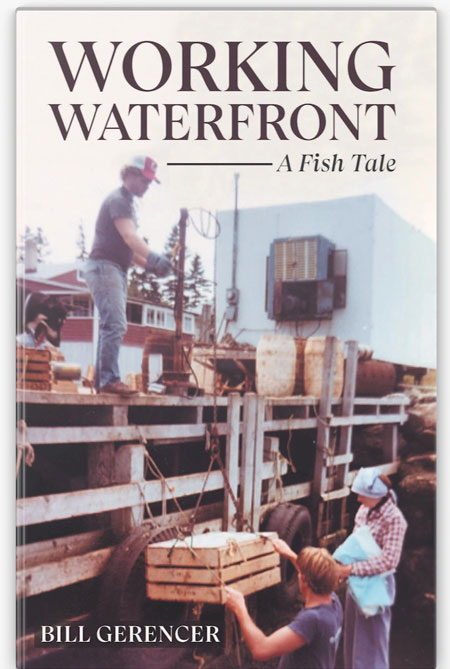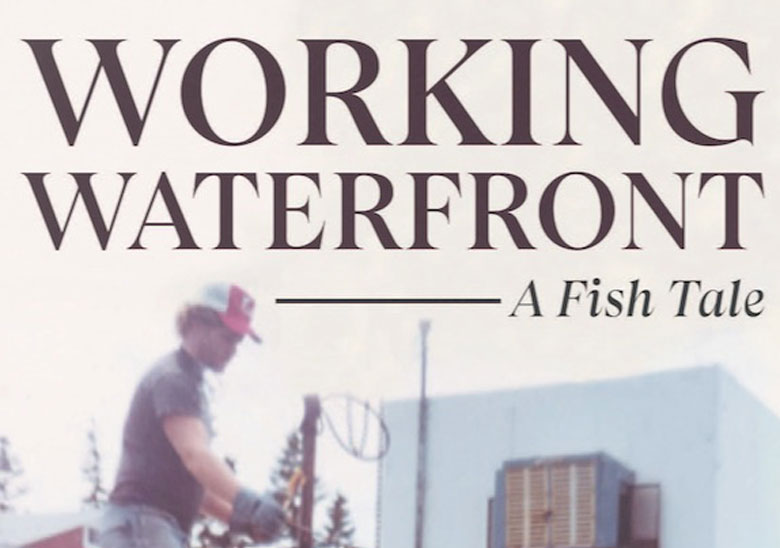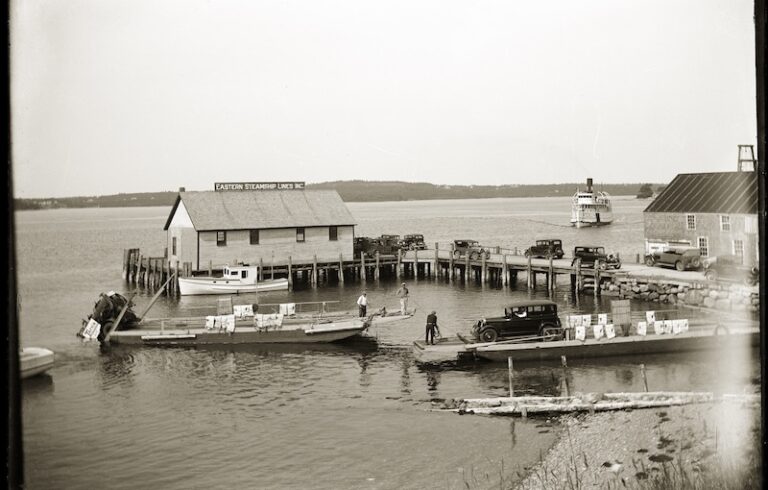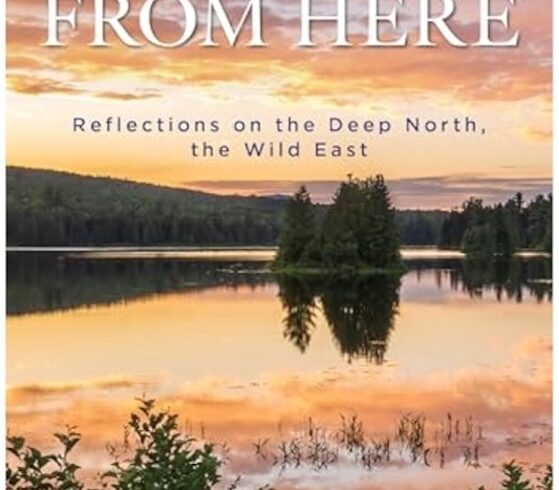Working Waterfront: A Fish Tale
By Bill Gerencer, Archway Publishing
Bill Gerencer knows seafood.
As a former fisherman, he knows how to catch it. As a long-time seafood buyer, he knows how to purchase and process it. As a one-time board member on the New England Fishery Management Council, he knows how to manage it. And from the decades he’s been in the business, he knows how to cook up many fine seafood dishes.
Gerencer’s book, Working Waterfront: A Fish Tale, is a memoir of Gerencer’s career on boats and waterfronts, in processing plants and regulatory meetings, and at fish auctions across New England and beyond.
But Working Waterfront is more than simply a book about fish—whether catching, processing, buying, managing, or cooking them. It’s a fast-paced collection of stories about the colorful people and places that Gerencer came to know and experience from his first job on a lobster boat in Boothbay Harbor up until his retirement from Foley Fish.
You’ll learn about his time aboard the Lorna Laurie lobster boat in Boothbay Harbor and the Calvin L. Stinson groundfish trawler out of Rockland.
Gerencer drops dozens of names in his stories and provides an insider’s view of the fish world that makes you feel as if you are there—on a boat at sea, on a wharf, in a back-room meeting, or perhaps in a rough-around-the-edges bar in a fishing port.
Gerencer’s time on waterfronts began with a summer job as a skinny sternman on a lobster boat after he earned a college degree in biochemistry. “’Just for the summer’ turned into the winter, the following summer, and another five years of working on offshore trawling, including one of the New England ‘highliners’ fishing on Georges Bank out of Boston Harbor,” Gerencer writes in the foreword of his book.

After his time on the water ended, he spent another 35 years at fish auctions, fish and shellfish farms, fishery management meetings, processing plants, and other shoreside spots in New England, as well as a lot of restaurant kitchens across the country.
“I never had a concrete plan, preferring a life that offered a closer connection to nature, the freedom to live outside the 9-to-5 world, and pay scales that more closely matched my effort and success,” Gerencer writes.
“True, in my chosen world 12 hours is only a half-a-day (‘You lazy bastid’), but the long hours, hard work, and the exercise of a sharp mind needed to succeed here leaves you with a satisfaction found by folks who love what they do.”
Gerencer’s book has ten chapters, the first several of which roughly follow his career chronologically. There, you’ll learn about his time aboard the Lorna Laurie lobster boat in Boothbay Harbor and the Calvin L. Stinson groundfish trawler out of Rockland. Then comes stints on the highliner Old Colony out of Boston and on other boats in Maine before he comes on shore to become a fish buyer at the Portland Fish Exchange for Foley Fish.
During his fishing years, Gerencer came to know the major fishing ports such as Point Judith, Boston, New Bedford, Gloucester, and Rockland, all of which “had their respective charms as tough towns,” he writes. But Portland, he concludes, was by far the toughest port back in the 1980s before it became spiffed up.
Most of his career was spent on shore, primarily as a seafood buyer at the Portland Fish Exchange for Foley Fish, and later as a salesman for Foley. Much of his book is devoted to his years on the Exchange and serving on the New England Fishery Management Council.
Throughout it all, Gerencer gives a behind-the-scenes look at the seafood trade, warts and all. He writes about the good people in the business, but also tells quite a few stories with a lot of salty language about the unsavory side of things: the black market, alcohol, guns, and the wheeling and dealing.
In so doing, the book gives the reader a vivid and detailed sense of place wherever it takes you.
As a bonus, he also provides recipes or cooking tips at the end of each chapter. Interested in fish cakes, pan-seared haddock over littlenecks, or fish chowder? Check out the end of chapters four, six, and nine.
The book is available for purchase at Amazon and at selected books stores throughout Maine and as far south as Cape May, New Jersey.
Clarke Canfield is a former reporter for the Portland Press Herald and the Associated Press. He lives in South Portland.





